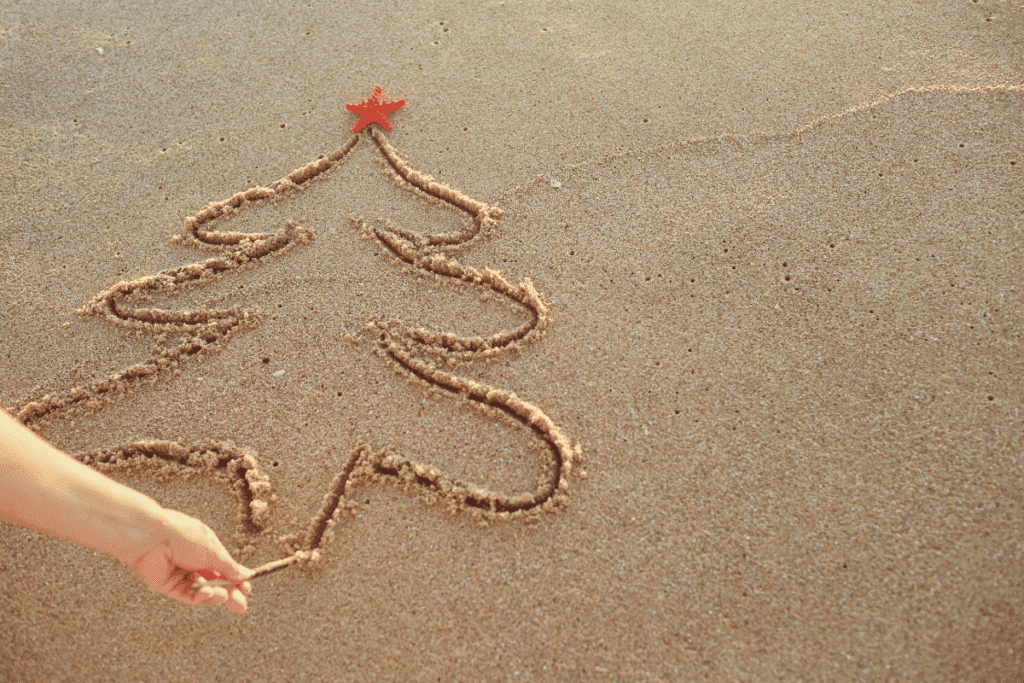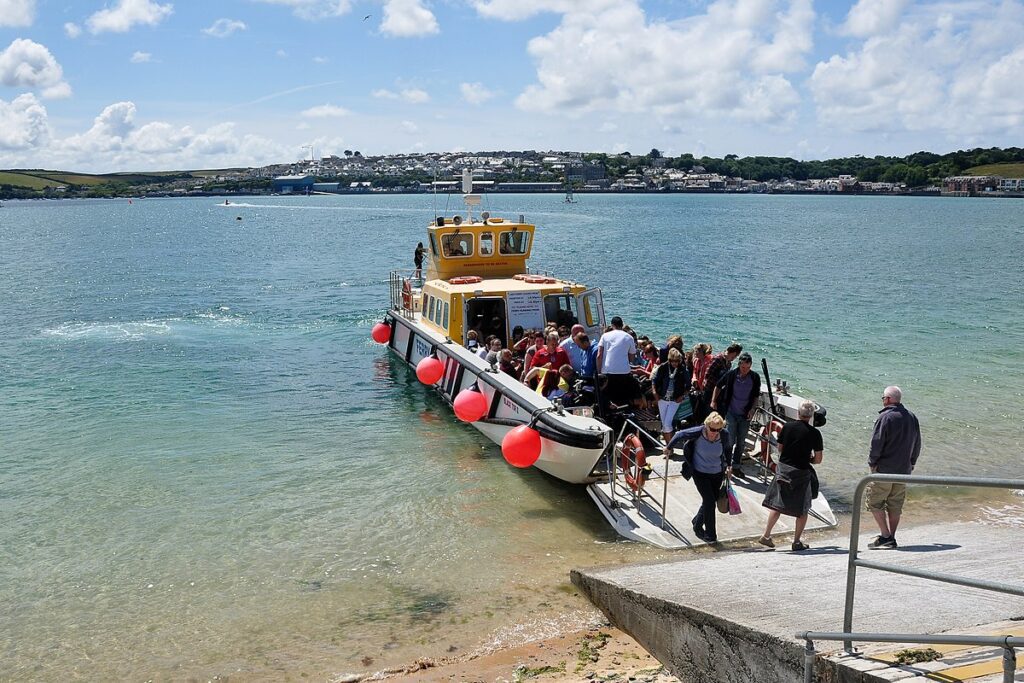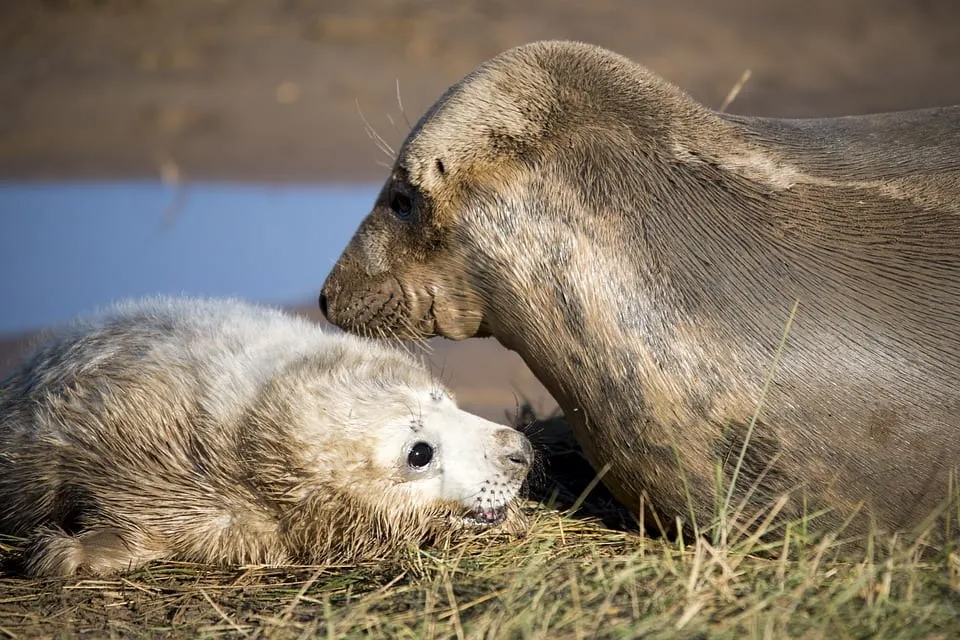What is the Great British Beach Clean?
The Great British Beach Clean is a week-long event organised by the Marine Conservation Society (MCS). Each September, thousands of volunteers across the UK come together for this important week of action, removing harmful debris from our shorelines while gathering vital data. The results gathered help to drive environmental policy change, making a real difference to our precious marine environments.
At Padstow Sealife Safaris, we witness firsthand the impact that plastic pollution can have on the wildlife we encounter daily during our boat trips. That’s why we’re passionate supporters of this nationwide initiative and excited to share everything you need to know about The Great British Beach Clean 2025.
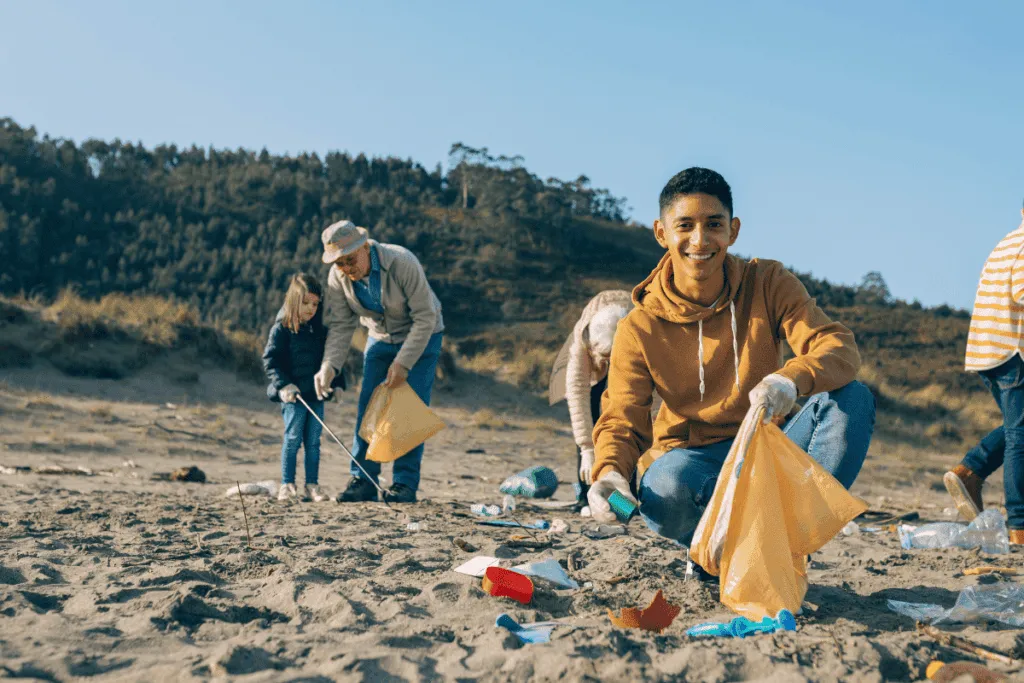
When Is The Great British Beach Clean 2025?
This year’s Great British Beach Clean is taking place between Friday 19th and Sunday 28th September 2025. It is the UK’s largest beach clean and litter survey event and aims to raise awareness about marine pollution whilst encouraging sustainable practices.
How to Get Involved in a Beach Clean
Getting involved in a beach clean is easy! You can either organise your own or join one of the hundreds of organised beach clean events happening around the UK during the week of the Great British Beach Clean.
Join a Beach Clean Event
You can find a beach clean near you by heading to the MCS website or by keeping an eye on local social media pages and posters in your local area. There’s no need to sign up, and all equipment will be provided. Just turn up with a passion for taking action and a ‘get stuck in’ attitude!
Organise Your Own Beach Clean
If you can’t find an organised beach clean in your local area, why not organise your own? You can organise one with your family, a local community group or work colleagues. Anyone who wants to get involved and make a difference to our coastline would no doubt be glad to take part.
The Marine Conservation Society website has a bank of helpful resources for organising a beach clean.
- Training for Beach Clean Organisers
- Beach Clean Volunteer Survey Printout
- Download the BeachWatch Survey App
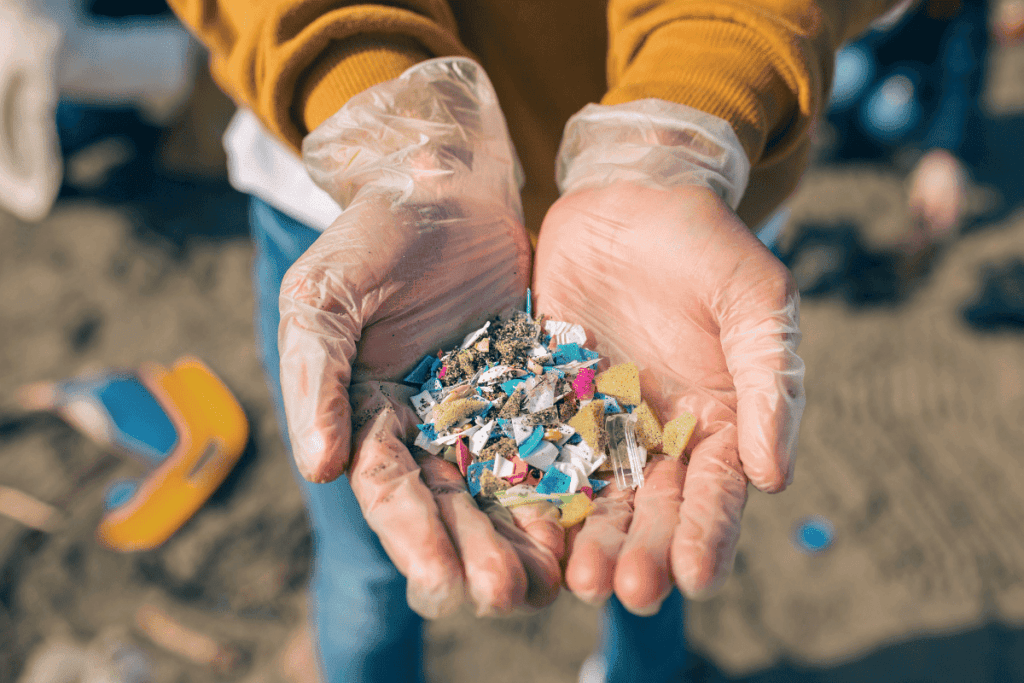
The Impact of Beach Cleaning
One of the biggest sources of plastic in our seas is simply littering. Rubbish left on the beach after a day out, refuse fly-tipped in our rivers and waste blown in from our streets – all contribute to a massive problem.
Last year alone, volunteers across Cornwall removed over 2.5 tonnes of waste from our beaches, preventing countless injuries to marine animals and seabirds. Every bottle cap collected, fishing line removed, and tiny piece of microplastic gathered represents a potential threat eliminated for marine wildlife.
The data collected during organised events like The Great British Beach Clean has directly influenced environmental policies. The most impactful of these include the UK’s ban on plastic microbeads in cosmetics and the introduction of the plastic bag charge.
People power works!
Common Items Found on Cornish Beaches
Large pieces of rubbish such as remnants from disposable boards, picnic litter, broken spades and particularly big “ghost nets” (fishing nets lost from fishing boats) are commonly found on Cornish beaches. These, of course, are incredibly dangerous to marine wildlife, tangling them up, getting stuck in their stomachs and causing injuries or worse.
However, we now also realise the real dangers of microplastics – plastic that has been broken up into small pieces in the ocean. These can be ingested by small filter-feeding animals, and then the toxins from the plastic can work their way up the food chain. Beach cleaning is not all about filling bin bags with all the big stuff; getting those harder-to-spot tiny pieces of plastic cleared from the beach is just as important for our sea life.
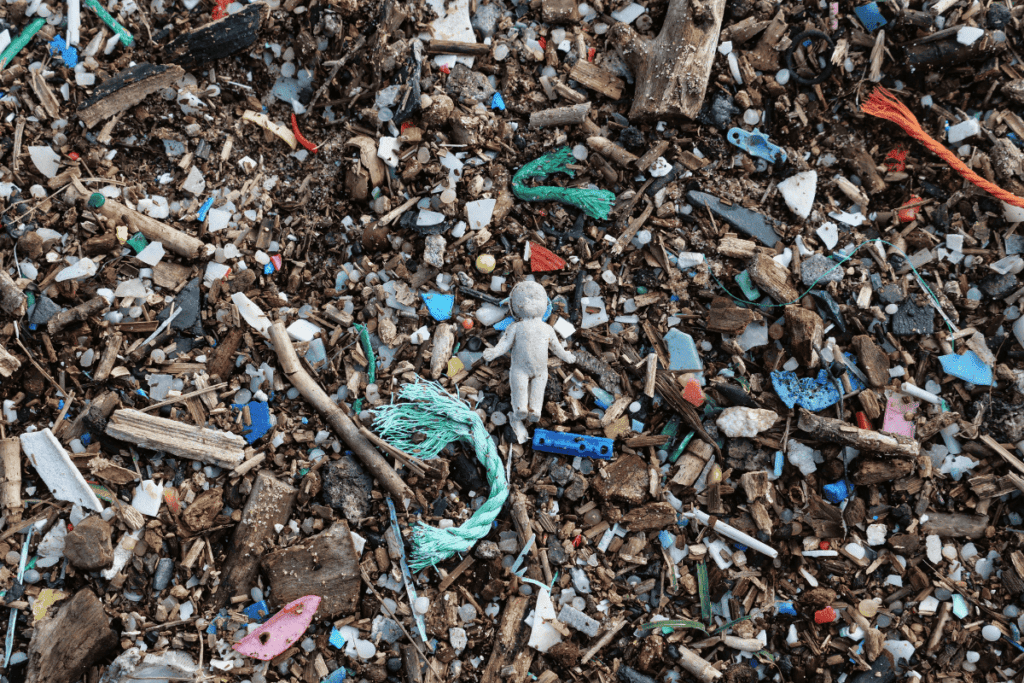
Data Collection and Why It Matters
We can of course, litter pick on our beaches any time of the year, and many of us do! However, the Great National Beach Clean is specifically designed as a data collection citizen science experiment to take a snapshot of the types of litter being found on our beaches at a set time of the year.
Collecting the data on the types and quantities of debris found (and where) gives us powerful insights that can drive real change. When thousands of volunteers across the country record exactly what they find – from plastic bottles to fishing gear to cigarette butts – we build a comprehensive picture of beach pollution that’s impossible to ignore. This scientific evidence helps identify pollution sources, track emerging trends, and measure whether policies like plastic bag charges or straw bans are actually working.
The Marine Conservation Society uses this data to lobby government and industry, showing them precisely where problems exist and which items need targeting next. Your careful counting and categorising transforms a simple beach clean into meaningful research that continues to protect our beautiful coastline for generations to come.
Beach Clean Statistics from Last Year
The Great British Beach Clean 2024 was a huge success! It saw 5,845 volunteers taking part in 476 beach clean events to tidy and survey our coastline. Here’s the standout data from the 2024 event:
- 249,823 items of litter collected
- 1675 bags of litter filled
- 70,086 metres of coastline cleaned
Those who live inland still played their part, with 104 volunteers taking part in Source to Sea litter picks in non-coastal areas. They collected 647 items, removing 84kgs of litter from the natural environment and stopping it from entering our waterways.
The MSC are now busily scrutinising the findings to produce an up-to-date Beachwatch Report 2024. Watch this space for news of its publication!
Conclusion
Ready to make waves of positive change? Joining the Great British Beach Clean 2025 is your chance to be part of something truly special!
Not only will you help create a cleaner, safer environment for our amazing marine wildlife, but you’ll also connect with like-minded ocean lovers and experience the incredible satisfaction that comes from making a visible difference to our beautiful Cornish coastline.
At Padstow Sealife Safaris, we’re counting down the days until we can grab our gloves and litter pickers and join you all! Remember, every piece of litter collected is a victory, every data card completed strengthens our collective voice, and every smiling volunteer spreads the message that our oceans matter. So mark your calendars, bring your enthusiasm, and let’s turn the tide on marine pollution together!
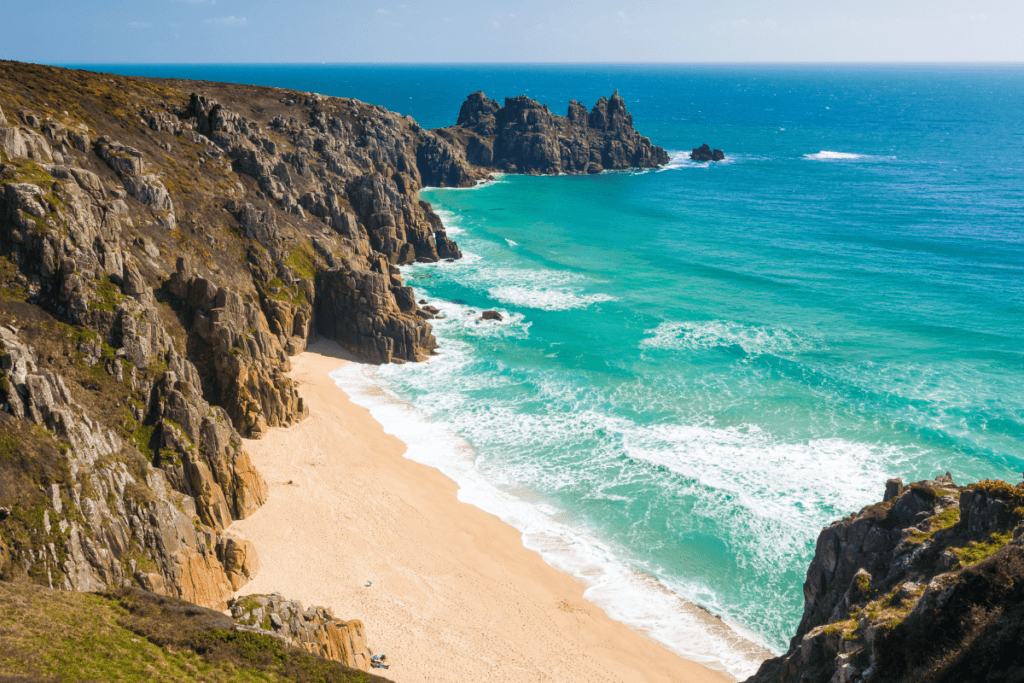
Love Our Beaches and Oceans?
Book a boat trip and appreciate the beauty of our natural world firsthand
FAQs About the Great British Beach Clean 2025
When is the Great British Beach Clean 2025 taking place?
The Great British Beach Clean 2025 is scheduled for 19th-22nd September 2025. This weekend-long event allows data collected in the UK to contribute to the global marine litter database.
Who organises the Great British Beach Clean?
The Marine Conservation Society (MCS) organises the Great British Beach Clean. As the UK’s leading marine charity, MCS has been coordinating this nationwide citizen science initiative for over 30 years to tackle marine pollution at its source.
How can I register to participate in a beach clean event?
You can register through the Marine Conservation Society’s website at mcsuk.org by searching for beach clean events in your area. If no events are scheduled for your local beach, you can register to organise your own event through the same portal.
What equipment do I need to bring to a beach clean?
Most organised beach clean events provide litter pickers, gloves, and collection bags. However, it’s recommended to bring your own reusable gloves (gardening gloves work well), sturdy footwear, weather-appropriate clothing, sun protection, water, and snacks. Some participants find a bucket helpful for collecting smaller items.
How does the data collection work during the beach clean?
Participants survey a 100-metre section of beach, recording all litter items found on a standardised survey form. The Marine Conservation Society provides recording sheets and guidance on how to classify different items. This data helps identify trends, sources of pollution, and informs policy decisions.
Can children participate in the Great British Beach Clean?
Yes, children are welcome and encouraged to participate! Beach clean-ups are excellent educational opportunities. Children under 16 must be accompanied by an adult, and event organisers often provide child-friendly activities and safety briefings tailored to younger participants.
How long does a typical beach clean event last?
Most organised beach cleans last between 1-2 hours. The actual cleaning portion typically takes about an hour, with additional time allocated for briefing, data recording, and proper disposal of collected waste.
How does the Great British Beach Clean contribute to marine conservation?
Beyond the immediate benefit of cleaner beaches, the data collected during the Great British Beach Clean has been instrumental in driving policy changes. Previous findings have influenced legislation such as the plastic bag charge, the microbead ban, and the reduction of plastic straws and cotton buds. The 2025 data will continue to inform future conservation initiatives.
Is there a specific focus for the Great British Beach Clean 2025?
The 2025 clean has a special focus on tracking the impact of the recent Extended Producer Responsibility regulations and monitoring the effectiveness of the Deposit Return Scheme implementation across the UK. Volunteers will be recording data that helps evaluate these policy measures.
How will the 2025 data be shared with the public?
Results from the Great British Beach Clean 2025 will be compiled into a comprehensive report, published on the Marine Conservation Society website in December 2025. The findings will also be presented to government agencies, shared with partner organisations, and used to inform ongoing campaigns against marine pollution.
